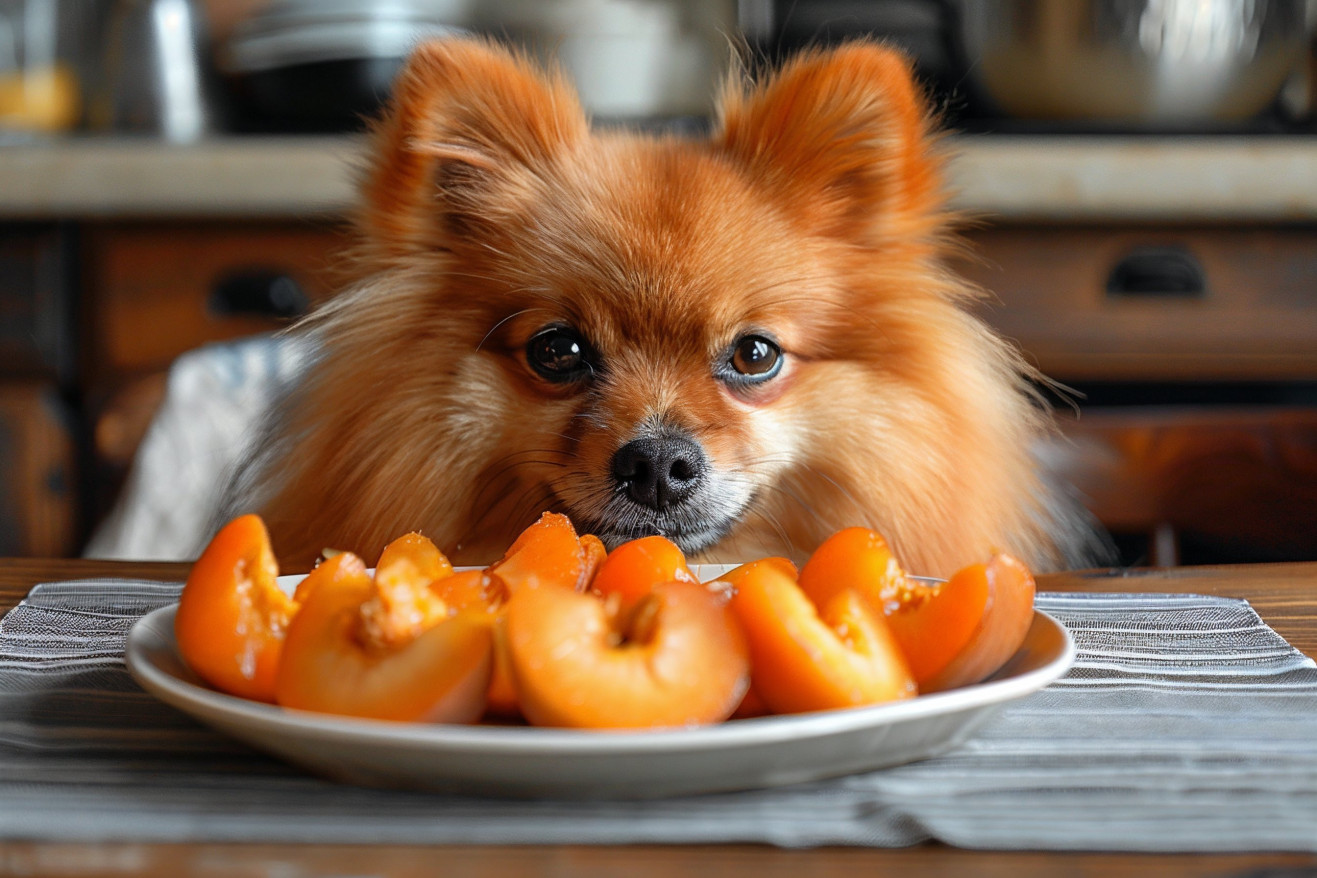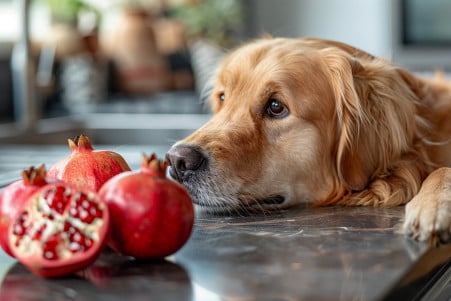Can Dogs Eat Persimmons? The Sweet Truth from Vets
18 April 2024 • Updated 17 April 2024

Persimmons are full of vitamins and minerals that can help your dog, but there are a few things to know before you let your dog chow down on this unique fruit. Persimmons are safe for dogs to eat in moderation when they’re ripe, but you should avoid letting your dog eat unripe persimmons, which are high in tannins that can lead to digestive upset. Persimmon seeds, stems, and leaves are also toxic. Persimmons are also high in fiber and natural sugar, so it’s important to make sure your dog doesn’t eat too much.
To help you better understand whether persimmons are a good choice for your dog, we’ve gathered information from veterinarians, pet nutritionists, and animal health organizations. By combining insights from a variety of experts, you’ll be able to learn about the potential benefits, risks, and serving suggestions that will help you make sure your dog can enjoy this seasonal fruit safely.
Can dogs eat persimmons?
Nutritional Facts of Persimmons for Dogs
Persimmons have a variety of nutritional properties that could potentially improve your dog's health. According to MasterClass, persimmons are high in vitamins A, B, and C, which are important for the immune system, eye health, and growth. Persimmons also have antioxidants, including lycopene, which a study cited by HealthierSteps says can help with inflammation and skin and coat health.
Persimmons also have fiber, which can help with digestion and bowel regularity in dogs, as noted by HealthierSteps. Persimmons are also high in minerals like potassium, magnesium, and calcium, which are important for muscles and bones, according to the nutritional facts listed on HealthierSteps.
That said, it's important to remember that the nutritional value of persimmons for dogs is likely less than that of a well-balanced commercial dog food diet. Dogs can make their own vitamin C and have different nutritional needs than humans, as noted by DesignerDogFoods. While persimmons can be a healthy treat, they should not be the main source of your dog's nutrition. With that in mind, let's take a look at the potential dangers and concerns of feeding persimmons to dogs.
Risks and Dangers of Feeding Persimmons to Dogs
While persimmons can be a healthy and tasty snack for dogs, there are several risks and dangers to consider. According to The Dog People by Rover.com, persimmon seeds and pits can cause intestinal blockages or obstructions, especially in smaller dogs. In addition, the high fiber and sugar content in persimmons can cause digestive issues like diarrhea, vomiting, and abdominal pain if consumed in large amounts.
Moreover, The Wildest explains that unripe persimmons are high in tannins, which can be toxic to dogs and cause irritation to their digestive system, as well as kidney and bladder stones. Some dogs may also be allergic to persimmons, and eating them can cause symptoms like itching, hives, and difficulty breathing. Finally, persimmon leaves and stems are poisonous to dogs and should be avoided at all costs.
To make sure that persimmons are safe for your dog to eat in moderation, it's important to know how to prepare and serve them, which we'll explain in the next section.
How to Prepare and Serve Persimmons to Dogs
As noted by Puainta®, it's important to prepare persimmons safely before giving them to dogs. First, make sure to wash the fruit thoroughly to remove any dirt, pesticides, or other contaminants. Then, cut the persimmon in half and remove the stem, leaves, seeds, and pit, as these parts can be toxic or a choking hazard.
DesignerDogFoods suggests cutting the remaining fruit into small, bite-sized pieces that are suitable for your dog's size to prevent choking. When you first introduce persimmons to your dog, give them just 1-2 tablespoons of the prepared fruit as an occasional treat and see how they react and respond. While persimmons should not be a regular part of a dog's diet, they can be given as a seasonal treat in moderation.
By making sure to follow these safe preparation and serving suggestions, you can ensure that your dog can enjoy the potential nutritional advantages of persimmons without experiencing any digestive or other problems. Still, make sure to look out for any negative side effects and contact your vet if your dog shows any worrisome symptoms after eating persimmons.
When to See a Vet After Persimmon Consumption
If your dog has eaten persimmons, make sure to keep a close eye on them for any signs of digestive issues. According to JustAnswer, some of the symptoms to look out for include vomiting, diarrhea, and abdominal pain. If you notice any of these symptoms in your dog, make sure to get in touch with your vet as soon as possible.
It's also important to seek out veterinary care immediately if your dog has eaten persimmon seeds, pits, or leaves, as these can cause intestinal blockages, especially in smaller dogs. Preventive Vet explains that persimmon seeds can cause inflammation and obstruction of the small intestines.
If your dog's symptoms don't improve after 24-36 hours, make sure to get in touch with your vet, as this could be a sign of something more serious, like an obstruction. VMBS News also explains that if your dog is experiencing severe dehydration from vomiting or diarrhea that won't stop, this is a medical emergency and you should seek out veterinary care right away.
When you talk to your vet, make sure to let them know how much persimmon your dog ate and what symptoms they're experiencing. This will help them decide on the best course of action. With the right care and attention, your dog can eat persimmons in moderation without any issues.
Summary: Can Dogs Eat Persimmons?
Persimmons can be a healthy, occasional treat for dogs when ripe and properly prepared by removing seeds, stems, and leaves. However, moderation is key, as overconsumption can lead to digestive issues like diarrhea and potential blockages from the seeds. While persimmons provide some nutrients, their overall nutritional impact for dogs is limited compared to a balanced commercial diet.
Always monitor your dog closely after eating persimmons and seek veterinary care if concerning symptoms like vomiting or lack of bowel movements occur. By following safe preparation and portion control guidelines, you can allow your dog to enjoy this sweet seasonal fruit without health risks.


